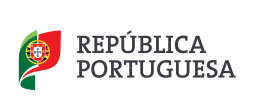Politics of Curatorship
Spring Seminar 2025
7 a 9 de Maio
Escola das Artes, Universidade Católica Portuguesa
Keynote Speakers:
- Mark Peranson (former programmer for Berlinale and Locarno)
- François Piron (curator of the Palais de Tokyo, Paris).
The Spring Seminar will also include a film program dedicated to Sarah Maldoror, curated by François Piron.
Curatorial processes – across various artistic fields – have increasingly become central to contemporary artistic research practices. Not that this movement is entirely new, but it has become more evident as the curator’s role has proven to be decisive in shaping the relationship between artistic works and the community. For this reason, the word curatorship has expanded beyond the domain of visual arts into other fields, such as cinema and critical thought. In this Spring Seminar, we will explore these curatorial practices through case studies, historical perspectives on curatorship, and experiences with emerging curatorial practices—particularly in fields where this role is now central.
At the heart of curatorial practice lies a process that combines theoretical research, a deep knowledge of the particular history of different art forms, but also the design of an experience for a potential audience—whether that be a film screened in a cinema or a combination of disparate objects displayed in a gallery. This experience shapes the core of a curator’s work and their relationship with artworks and the community they engage with. The curator occupies an interdisciplinary position, simultaneously navigating areas such as visual and intermedia poetics, historical research, and the theoretical confluences of critical thought. The curator is a figure of their time and space. In this sense, they are also a political agent, proposing a discourse within the polis, a space of dialogue and confrontation.
Beyond these definitions and the expansion of the concept into various artistic practices, it is also essential to consider curatorial practice in a world undergoing profound transformations, particularly in relation to: the climate crisis; the rise of nationalist and far-right agendas; decolonial thought and debates on historical reparations, which challenge us to relearn the meaning of the world; and finally, the emergence of artificial intelligence technologies and the revolution in cultural consumption brought about by our new digital lives.
How can curatorial practice adapt to these new contexts? In what ways can it be reimagined as a community-driven practice? How can we rethink the meaning of the curatorial process today? What practices are at the forefront of curatorial thought? How can curatorship maintain a critical and reflective approach? In recent years, various events in the artistic world have rekindled the urgency of political dimensions within museums and cinema spaces. This reflection is also a crucial part of this Spring Seminar.
Thus, this conference aims to be a space for questioning curatorial practices, fostering discussions on topics such as:
- definitions and epistemologies of curatorship
- critical discussions on curatorial practices (case studies)
- critical historiography of curatorship
- curatorial models and methodologies
- curatorship across different artistic practices—cinema, music, sound art, new media art, thought—as well as within the traditional museum space
- relationships between curatorial practice and community
- the connection between curatorship and institutional stakeholders (museums, cinemas, cultural institutions)
- curatorship in relation to educational and pedagogical practices
- curatorial practice in the face of generative AI technologies
- curatorship, museums, and decolonial debates
- the presence of curatorship as a gesture that actively constructs theory itself.
(the Microsoft CMT service was used for managing the peer-reviewing process for this conference. This service was provided for free by Microsoft and they bore all expenses, including costs for Azure cloud services as well as for software development and support).




